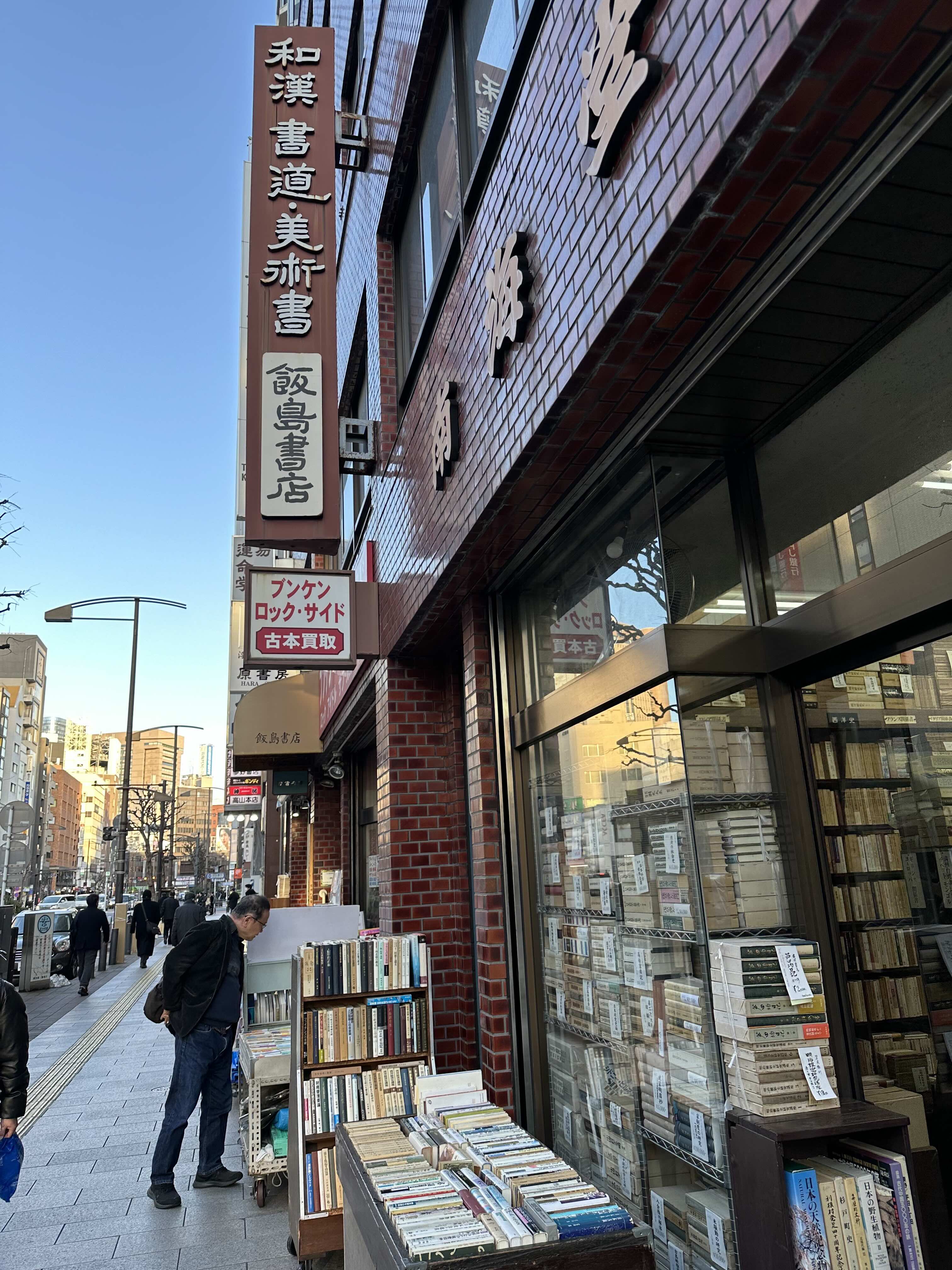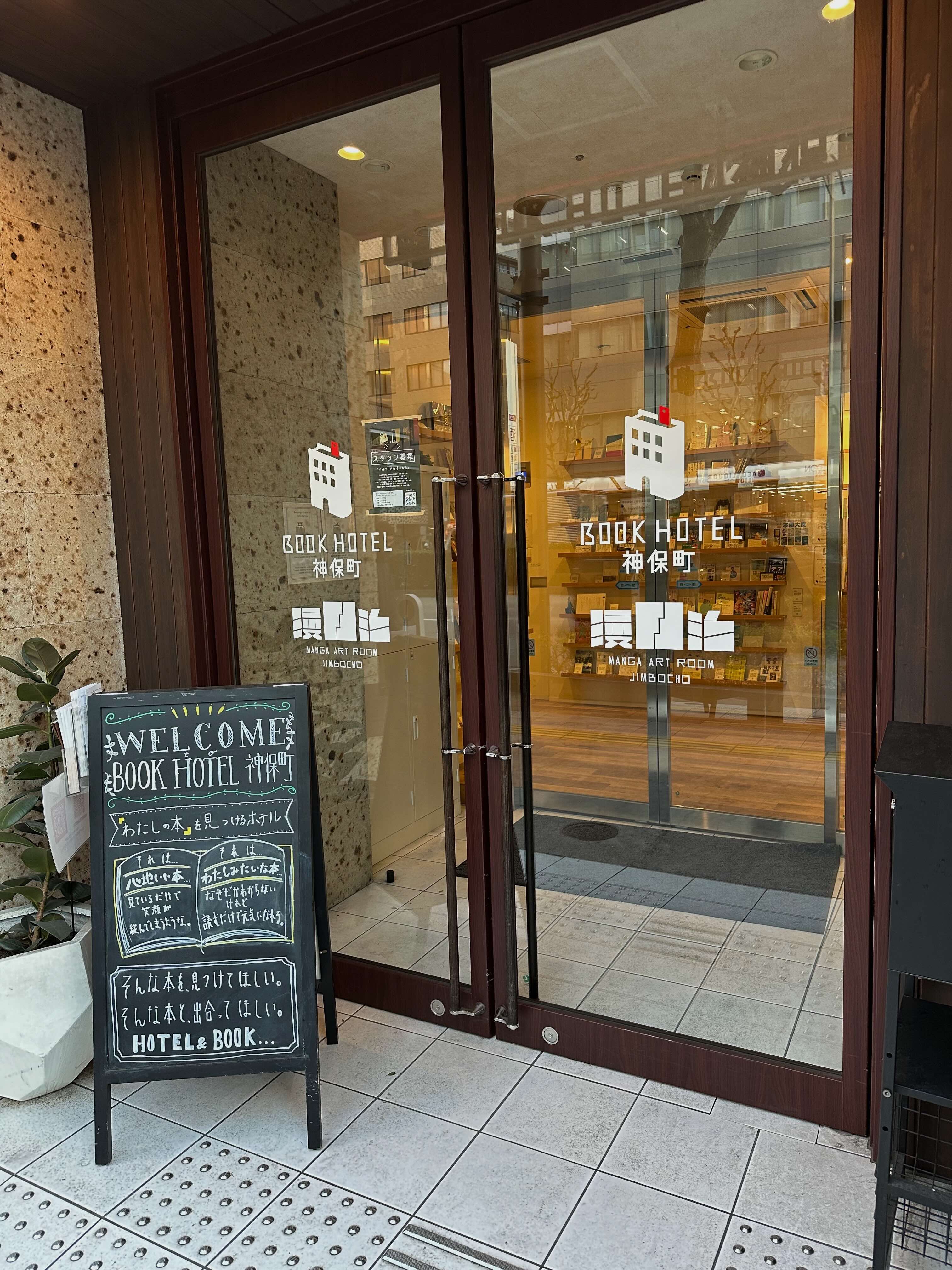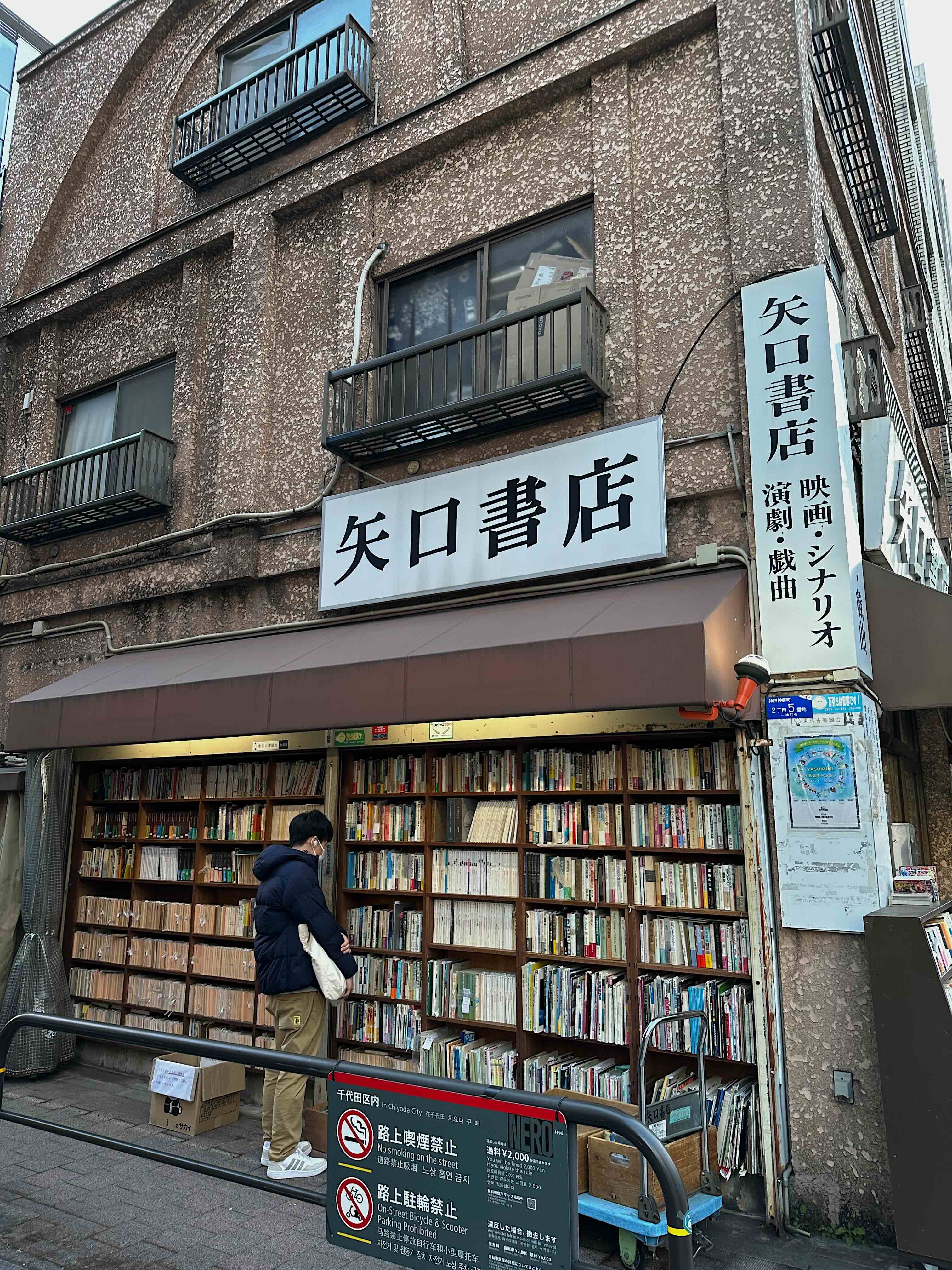By Stephana Ocneanu
Medill Reports
TOKYO — It’s winter in Tokyo. After several days of snow and rain, locals soak up the sun with an afternoon stroll through Jimbocho. Bookstores line the streets, some exhibiting their collections with shelves and carts outside, others with glass doors welcoming a glimpse inside. Most owners take advantage of every inch of space by doing both.

Dubbed the “City of Books,” Jimbocho has long attracted students, locals and tourists from all over the world. Less than a 20-minute walk from the Imperial Palace, Jimbocho is home to around 200 bookstores that neighbor one another on every street. The smell of curry and udon noodles travels from the restaurants tucked within alleyways.
In Jimbocho, visitors find everything from manga art to scientific essays to rare Japanese collectibles and prints.
“I feel like more and more people are checking out the dream of visiting Jimbocho as a way to experience Japanese culture in their lives, like bringing home an old book made from the paper used in ancient Japan,” said Nene Komori, an employee at the Book Hotel, which has 12 floors themed around different literary genres, such as mystery and romance.


A history of survival
During the Meiji period, many universities were built around the Jimbocho area, in Chiyoda City. To cater to the students, booksellers purchased used academic textbooks and resold them. As the shops multiplied, Jimbocho transformed into a used bookstore district, according to Fueisha, a Japanese publishing company.

Then, in 1923, Jimbocho, along with nearly half of Tokyo, disintegrated during the Great Kanto Earthquake. It wasn’t until the 1930s that bookstores began to bloom in the neighborhood again. The book district was more fortunate during World War II, when it was spared from heavy bombing in Tokyo.
An all-inclusive oasis
Today, Jimbocho has organically evolved to cater to new visitors. Select stores specialize in book and magazine collections in different languages, such as German, Russian and Chinese. Most stores have signs with English translations, and if you look hard enough, you’ll find English classics, such as Jane Austen’s “Pride and Prejudice.”

Yet the real beauty of exploring Jimbocho lies in finding rare Japanese prints.
Natasha Brandstatter read about the district as she planned her visit from Colorado to Japan in 2016. A freelance writer at the time, Branstatter never passed up an opportunity to shop for books. As her friends visited Honda’s headquarters, she escaped to Jimbocho.
“When I got off the train, the first thing I saw was a mural with books on the station’s walls,” Brandstatter said. “It got me so excited, like it was everything I could imagine it to be.”
Ryan Fleming first visited Jimbocho in 2018, when he and his wife moved from Portland, Oregon, to Tokyo.
“Sure enough, I fell in love with it,” Fleming said. An avid reader, Fleming enjoyed exploring the district for hours that day and has since made monthly visits to the Kitazawa Bookstore and Yamamoto Books.
Throughout his time living in Japan, Fleming said he has admired the culture’s love and respect for books. Centuries-old texts are displayed in glass cases, and newer prints are sized to fit in your pocket and reduce space.

‘E-books are just information’
According to the Publishing Science Research Institute’s 2023 Publication Index Annual Report, electronic publishing sales are rising in Japan, while physical book sales are declining. Between 2020 and 2022, sales for e-books had a 27.5% increase. Sales for physical books during the same period dropped by 2.5%
Amid the rising popularity of e-books and audiobooks, Komori said she hopes Jimbocho can serve as a reminder of the importance of physical literature.
“It’s great to be able to actually hold old books in your hands, and to see rare and valuable editions still being sold,” Komori said.
Brandstatter also said she prefers the feel of a physical book, something you can’t get with a Kindle.
“E-books are just information,” Brandstatter said. “You can’t put your copies on shelves, admire their cover art, scribble little notes down and pass them along to your children.”
When asked how he’d describe the district to someone who’s never visited, Fleming quoted Argentine writer Jorge Borges, “I have always imagined that paradise will be a kind of library.”
Looking out the window of the Kitazawa Bookstore, he smiled and pointed.
“I think the best thing you can say about Jimbocho is that if Borges saw it, he would say it’s heaven on earth.”
Stephana Ocneanu graduated with a master’s of science in journalism, and a specialization in investigative journalism, from Medill in 2024. You can see more of her work here, or connect with her on LinkedIn.

